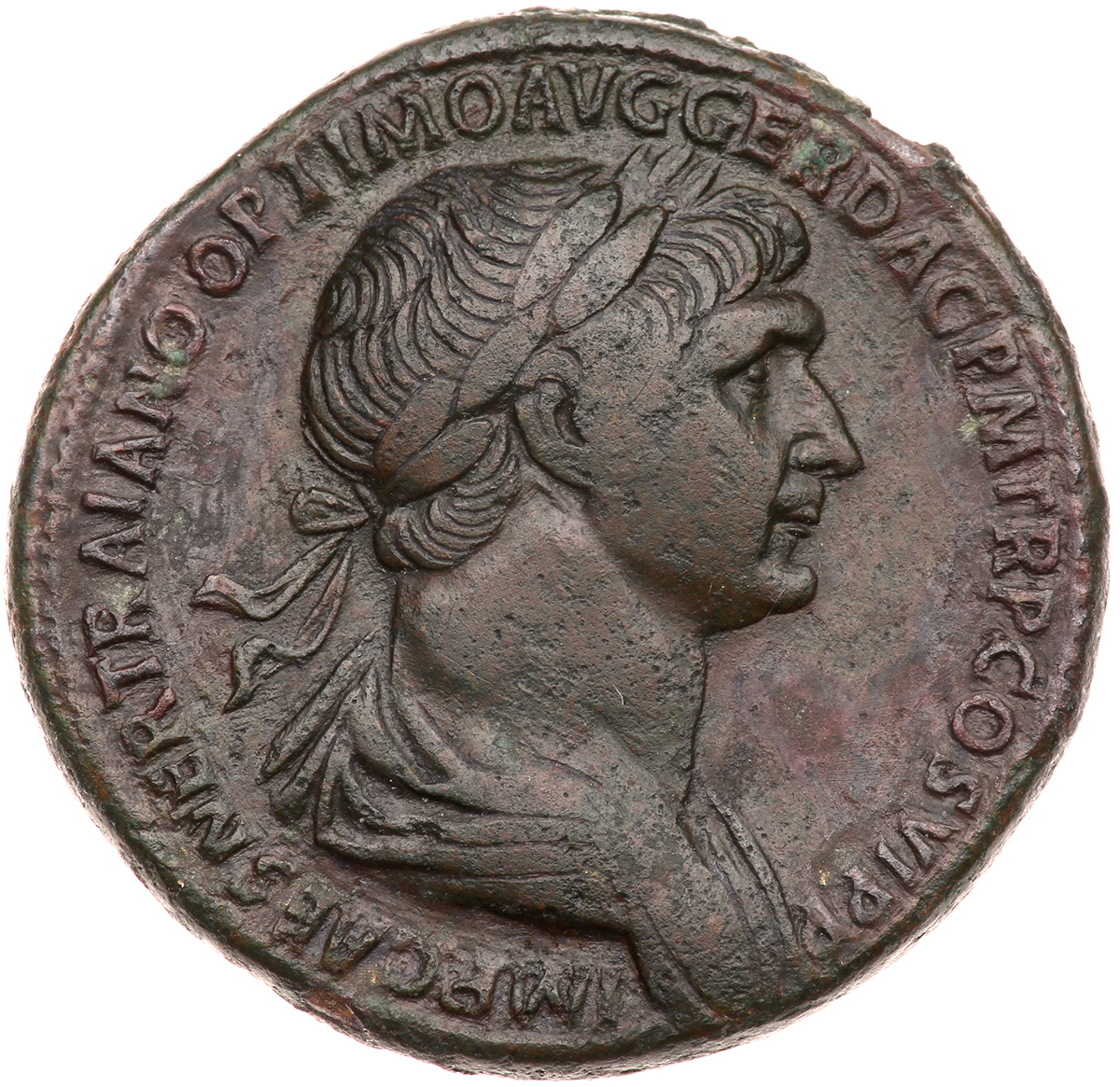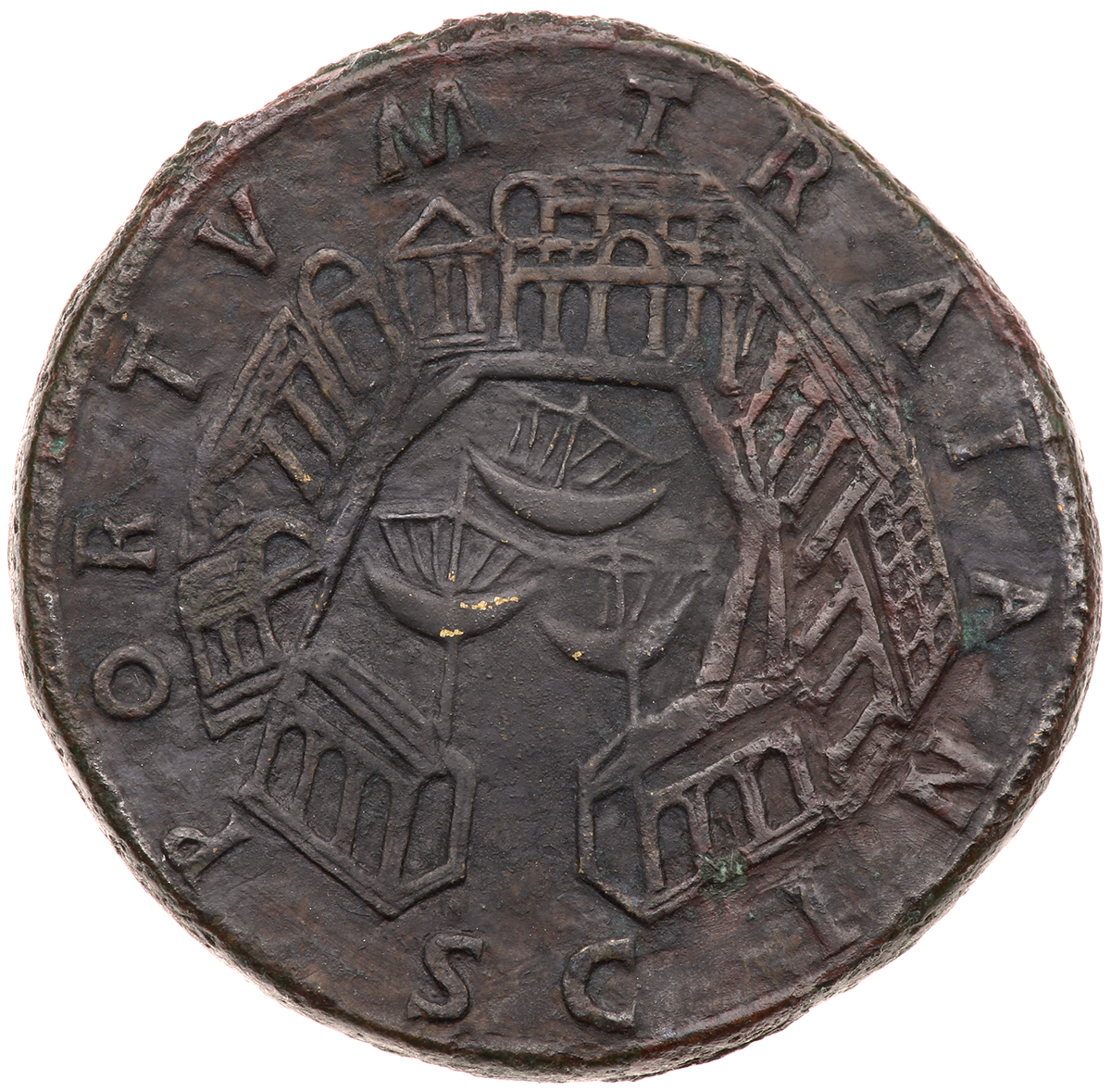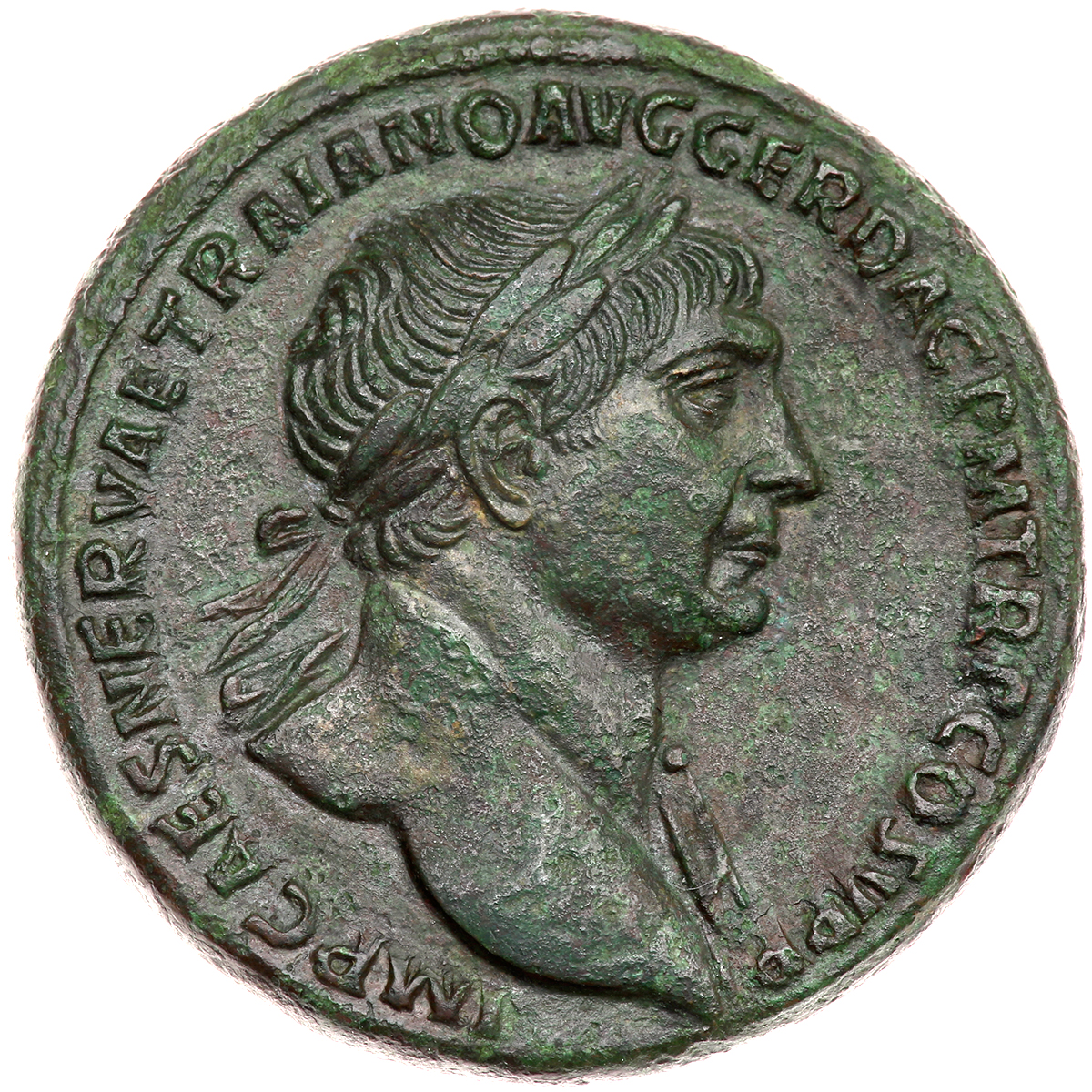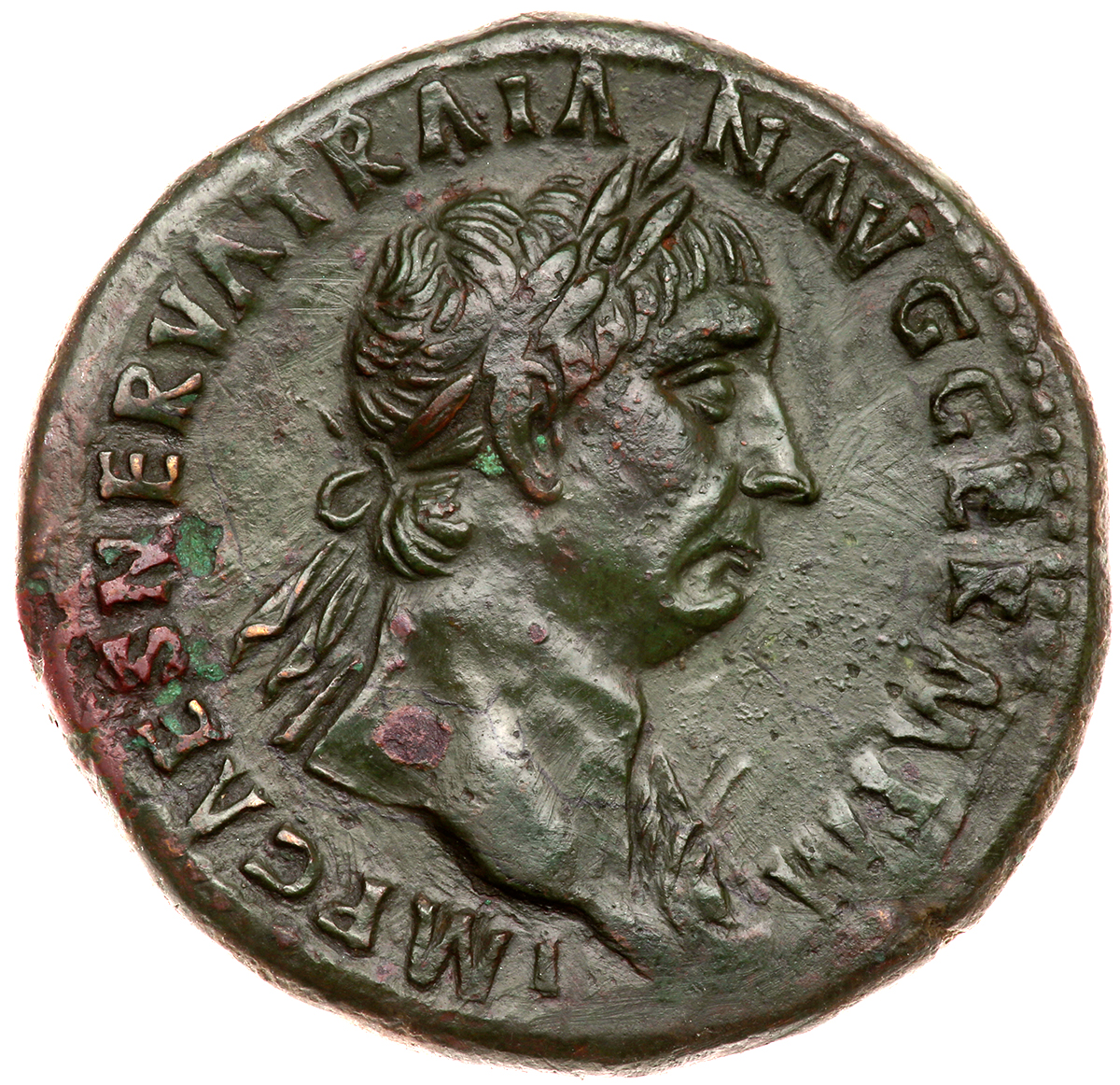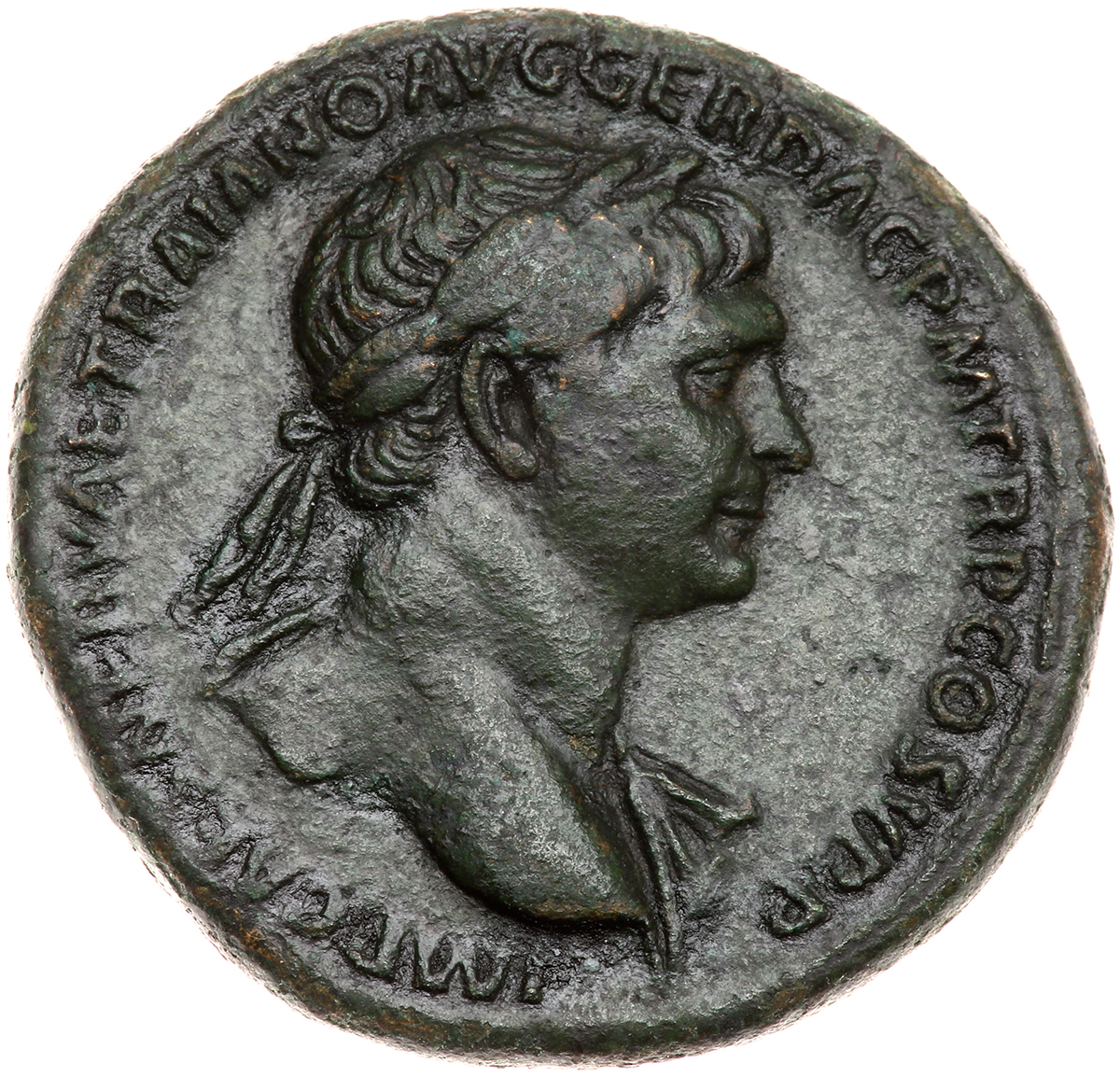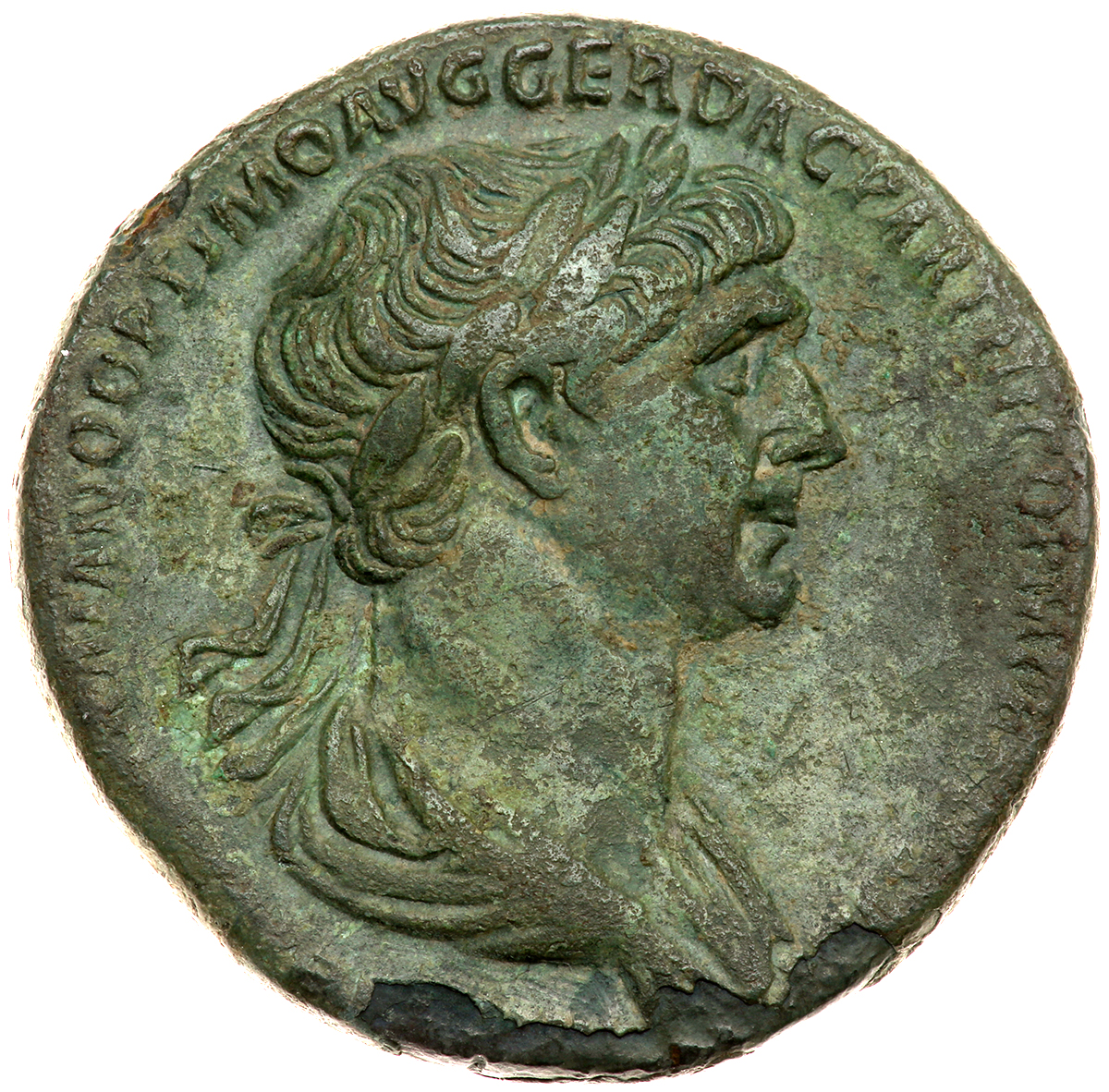By: Ira & Larry Goldberg Coins & Collectibles, Inc.
lot # 2002 - roman imperial coinage
Trajan. AE Sestertius (25.58 g), AD 98-117 VF. Rome, AD 113. IMP CAES NER(VAE) TRAIANO OPTIMO AVG GER DAC PARTHICO P M TR P COS VI P P, laureate and draped bust of Trajan right. Reverse: PORTVM TRAIANI, S C in exergue, aerial view of Trajan's hexagonal harbour at Ostia, with entrance at bottom, buildings and colonnades surrounding the harbour, and three ships anchored within. RIC 632; Woytek 470v. Very Rare. Some smoothing and tooling. Reddish-brown patina. Struck on a nice broad flan. Very Fine.
Rome in the second century AD was inhabited by more than a million people, a population which no city surpassed until the industrial age a millennium and a half later. To accommodate the needs of such a huge population, the small port at Ostia located at the mouth of the Tiber River fourteen miles distant from the city was greatly expanded during the reigns of Claudius and Nero. Goods off-loaded at Ostia were either transferred to barges that then went up the Tiber or were carried overland on carts and pack animals to the capital city.
Due to its unfortunate geography, the harbor at Ostia was prone to silting and had to frequently be dredged. The emperor Trajan, wishing to expand the facilities and also to help obviate the problem of the silting, ordered the construction of a new, hexagonal harbor further inland behind the original Claudian port, which he finished in AD 113. It is this port, the Portum Traiani, that is the subject of the reverse of this elusive sestertius. The remains of part of the docks as well as the canal that linked Trajan’s port with the Tiber can still be seen today. Estimated Value $5,000 - 6,000
Ira & Larry Goldberg Auctioneers
Ira and Larry Goldberg are experts in the Numismatic field with over 50 years of experience. In 2010, they were each awarded a Lifetime Achievement for their contributions to the Numismatic... Read More
Send Email to Ira & Larry Goldberg Coins & Collectibles, Inc. Or Visit WebSite

